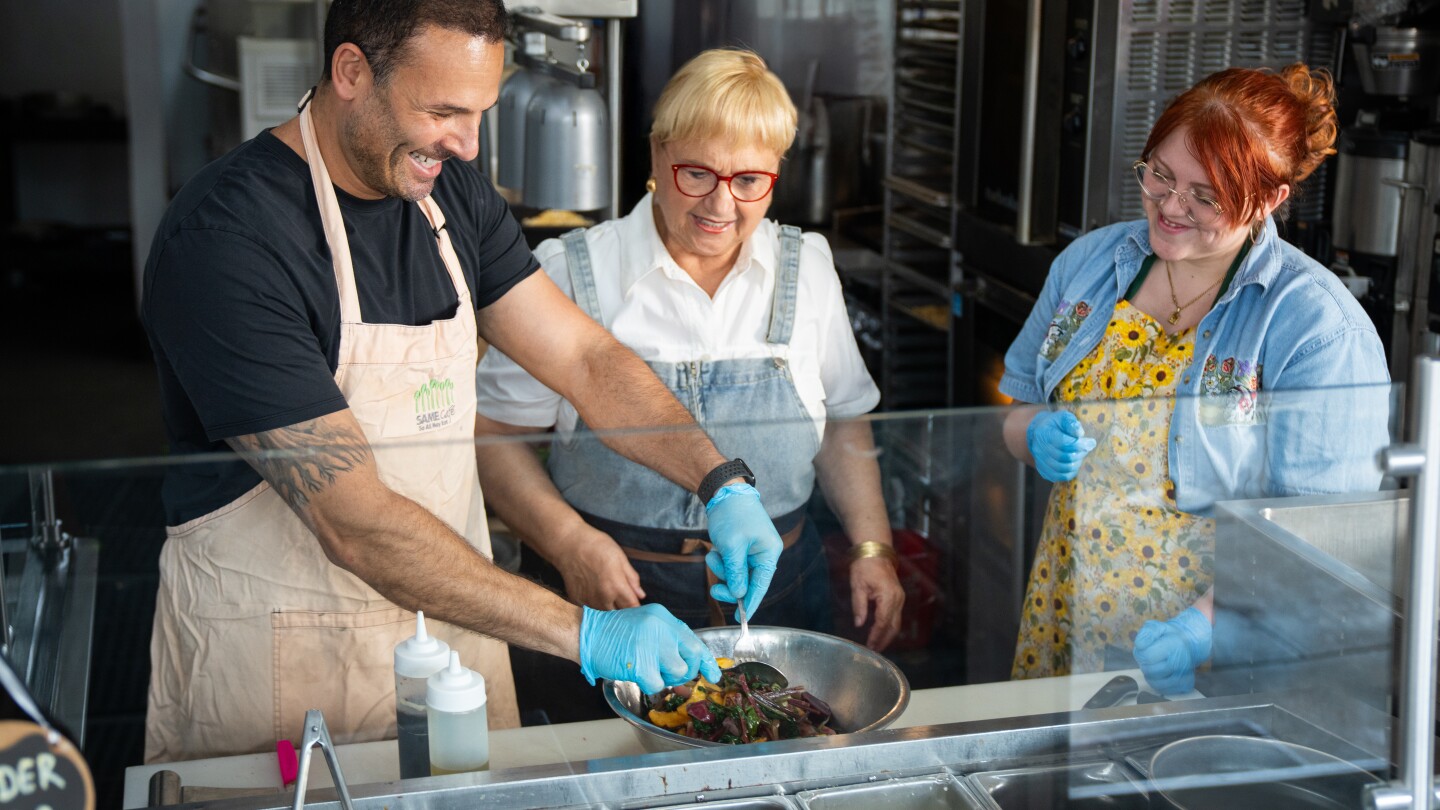Lidia Bastianich hits the road in PBS special to honor community
NEW YORK (AP) — Lidia Bastianich grew up in a small town in Italy where neighbors were like extended family. If kids came home from school and mom was out, they went to the neighbors for a snack. If someone had a problem with a sibling, they went next door.
The Emmy Award-winning TV host, author and restaurateur remembers her grandmother making an extra pot for lunch and sending young Lidia next door with it to feed her blind, elderly neighbor, along with a glass of wine.
That sense of community is not specific to Italy, of course. “It exists in America in smaller situations, but we need to nurture that ever more,” Bastianich says.
She’s hoping to spotlight and cultivate togetherness with her 14th TV special, “Lidia Celebrates America: A Nation of Neighbors,” which premieres Nov. 25 on PBS and streams on PBS.org.
“It’s my way of really thanking America. I think that there’s no better place in the whole world than the United States of America and somehow it’s been maligned,” she says. “What I know is that out there, in the midst of America, there’s a lot of good American people.”
Where does Bastianich go?
Bastianich travels to wildfire-scarred neighborhoods outside Los Angeles, a pay-how-you-can café in Denver, a Japanese-American community center in Portland, Oregon, and a first-of-its-kind free grocery market in San Francisco. At every stop, there are hands reaching out to help.
“That connection makes you feel good, it makes you feel more of a human being. And it gives you back that kind of desire to live on positively,” she says.
The hourlong special starts in Altadena, California, hurting from the recent wildfires. Bastianich joins volunteers making 175 five-course meals that are delivered to victims. One of the volunteers is someone himself living out of his car because the flames had made him homeless.
“I got the shivers. I just needed to hug him,” she recalls. “I know that he needed that. I know he was in his car by himself, and yet he found it within him to give. That takes fortitude. It takes character.”
She also meets self-taught cook Kiki Ruff in Porter County, Indiana. Ruff hosts a viral TikTok series that helps families struggling with food insecurity stretch their groceries, using recipes from the Depression, recessions and wartime.
In Denver, Bastianich visits a restaurant — SAME, which stands for So All May Eat — where guests can offer money, produce or volunteer their time in exchange for a meal.
“You could pay for dinner or lunch and that goes to subsidizing the whole thing. But if you have a garden and you grow certain things and have excess, you can bring in vegetables or fruit and you get a meal,” she says.
“Or you can work, you can go behind and begin to pack vegetables or whatever. But it doesn’t only get you a meal. It gets you interacting with other people and giving.”
Another spot she visits is a Portland community hub for Japanese-American elders that offers meals, tai chi, and connection for seniors and families.
‘Do something for your neighbor’
Bastianich, whose latest book is “Lidia’s The Art of Pasta: An Italian Cookbook,” with her daughter, Tanya Bastianich-Manuali, has herself benefited from community aid. She was born in 1947 in Istria, an Italian territory ceded to Yugoslavia after World War II. She spent the first years of her life under communist rule, then fled with her family across the border to Italy. There, they lived in a refugee camp for two years until an aid organization helped bring them to New York in 1958.
Bastianich’s last stop is in San Francisco, home of the nation’s first legislatively supported free grocery market, which serves thousands of residents. Shoppers there find shelves full and are free to pick what they want.
“It was not like just a handout or a box of food. These people came in and they felt good,” Bastianich says. “They had integrity in going in and choosing what they’re going to eat, not just accepting what was given to them.”
What Bastianich found on her travels is that small gestures of kindness to someone in your community can do wonders not just for them — but also for you.
“You don’t have to give big checks or anything. Do something for your neighbor,” she says. “That connection makes you feel good. It makes you feel more of a human being. And it sort of gives you back that desire to live on positively.”


